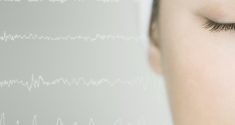Caffeine is not only found in coffee, but also in tea, chocolate, energy drinks, and many soft drinks, making it one of the most widely consumed psychoactive substances in the world. In a study published in Nature Communications Biology, a team of researchers from the Université de Montréal has gained new insights into how caffeine can alter sleep and influence the brain’s physical and cognitive recovery overnight.
The Influence of Caffeine on Sleep
The study was led by Philipp Thölke, a research associate at the Cognitive and Computational Neuroscience Laboratory (CoCo Lab) at UdeM, and co-led by lab director Karim Jerbi, professor of psychology and researcher at Mila – Quebec AI Institute. In collaboration with Julie Carrier, professor of sleep and aging psychology, and her team at the Centre for Advanced Research in Sleep Medicine at UdeM, the scientists used AI and electroencephalography (EEG) to investigate the effects of caffeine on sleep.
 They were able to demonstrate for the first time that caffeine increases the complexity of brain signals and enhances the “criticality” of the brain during sleep. Interestingly, this was more pronounced in younger adults. “Criticality describes a state of the brain that is balanced between order and chaos,” Jerbi explained. “It’s like an orchestra: if it’s too quiet, nothing happens; if it’s too chaotic, there’s cacophony. Criticality is the golden mean where brain activity is both organized and flexible. In this state, the brain functions optimally: it can process information efficiently, adapt quickly, learn, and make decisions with agility.“ Carrier added: ”Caffeine stimulates the brain and puts it into a state of criticality where it is more alert, attentive, and responsive. While this is useful for concentration during the day, this state could interfere with a good night’s sleep: the brain would neither relax nor recover properly.”
They were able to demonstrate for the first time that caffeine increases the complexity of brain signals and enhances the “criticality” of the brain during sleep. Interestingly, this was more pronounced in younger adults. “Criticality describes a state of the brain that is balanced between order and chaos,” Jerbi explained. “It’s like an orchestra: if it’s too quiet, nothing happens; if it’s too chaotic, there’s cacophony. Criticality is the golden mean where brain activity is both organized and flexible. In this state, the brain functions optimally: it can process information efficiently, adapt quickly, learn, and make decisions with agility.“ Carrier added: ”Caffeine stimulates the brain and puts it into a state of criticality where it is more alert, attentive, and responsive. While this is useful for concentration during the day, this state could interfere with a good night’s sleep: the brain would neither relax nor recover properly.”
Effects on Memory Processing
To investigate how caffeine affects the sleeping brain, Carrier’s team recorded the nighttime brain activity of 40 healthy adults using an electroencephalogram. They compared each participant’s brain activity on two different nights – once after taking caffeine capsules three hours and then one hour before bedtime, and once after taking a placebo at the same time.
“We used advanced statistical analysis and artificial intelligence to identify subtle changes in neural activity,” said Thölke, lead author of the study. The results showed that caffeine increased the complexity of brain signals, suggesting more dynamic and less predictable neural activity, especially during the non-REM phase of sleep, which is critical for memory consolidation and cognitive recovery.
The researchers also discovered noticeable changes in the brain’s electrical rhythms during sleep: caffeine attenuated slower oscillations such as theta and alpha waves, which are typically associated with deep, restful sleep, and stimulated beta wave activity, which is more common during wakefulness and mental activity. “These changes suggest that under the influence of caffeine, the brain remains in a more active, less restful state even during sleep,” says Jerbi, who also holds the Canada Research Chair in Computational Neuroscience and Cognitive Neuroimaging. This change in the brain’s rhythmic activity could explain why caffeine impairs the efficiency of the brain’s nighttime recovery, which may have implications for memory processing.
People in their 20s More Affected
The study also showed that the effects of caffeine on brain dynamics were significantly more pronounced in young adults between the ages of 20 and 27 than in middle-aged participants between the ages of 41 and 58, especially during REM sleep, the phase associated with dreaming. Young adults responded more strongly to caffeine, which is likely due to a higher density of adenosine receptors in their brains. Adenosine is a molecule that gradually accumulates in the brain throughout the day, causing a feeling of tiredness. Adenosine receptors naturally decrease with age, reducing caffeine’s ability to block them and improve brain complexity, which may partly explain the lower effect of caffeine in middle-aged participants.
These age-related differences suggest that younger brains may be more sensitive to the stimulating effects of caffeine. Given the global prevalence of caffeine, particularly as a daily remedy for fatigue, the researchers emphasize the importance of understanding its complex effects on brain activity across different age groups and health conditions. They add that further research is needed to clarify how these neural changes affect cognitive health and daily functioning, and to potentially develop personalized recommendations for caffeine intake.







